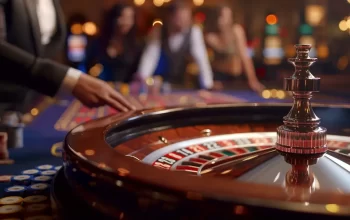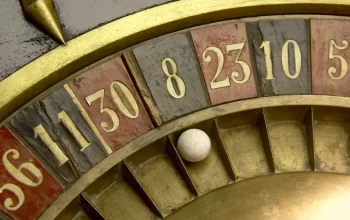Bettors’ addictions can create emotional and financial stress for both themselves and their loved ones. Individuals may miss classes or work to gamble, lying to family about spending habits and hiding debts from them, as well as missing classes themselves in order to gamble.
Know the signs of gambling addiction and seek professional assistance as soon as possible. Initially, contacting a healthcare provider for assessment.
Treatment
As with other forms of addiction, the first step in treating gambling addiction is recognising that there is an issue. Admitting that your gambling behaviors have damaged finances, careers or relationships is both brave and brave; admitting you need help controlling them requires strength.
Psychotherapy (or talk therapy) can provide valuable insight into why gambling occurs and help modify unhealthy beliefs and habits that contribute to gambling behavior. Therapists also teach healthy coping mechanisms and offer support services in order to repair relationships and finances.
Medication used for other addictions has not proven successful at treating gambling disorder; however, they may help alleviate co-occurring mental health conditions like anxiety and depression. Medication can reduce cravings while soothing physical symptoms associated with gambling addiction – stomachaches, insomnia and anxiety being just some examples – it may even alleviate depression which often exacerbates gambling behaviors.
Prevention
There are various methods available to you to prevent gambling addiction, including self-guided interventions like workbooks accompanied by phone calls from counselors and motivational enhancement therapy. Other prevention measures may include identifying and managing triggers like stress, family and financial strain, while avoiding high-risk environments like sports events and casinos can further lessen temptation.
Imagine desensitization is an effective method to curb your desire to gamble by visualizing its consequences and related urges, delaying them until later or diverting yourself with another activity such as hobbies that generate endorphins and provide relief from daily stressors.
Reminding yourself that gambling is a losing habit can also help break the cycle of chasing losses and build resistance against addiction. Gambling should not just be seen as a hobby; it should be treated as an addiction.
Addiction symptoms
Identifying symptoms of gambling addiction is critical – there are various treatment options available such as self-help groups like Gamblers Anonymous, counselling services and medication that could provide relief.
Therapists can assist in recognizing any unhealthy internal or family dynamics that contribute to compulsive gambling and addictive tendencies, teach coping skills and offer trauma-informed mindfulness therapy as potential solutions for those struggling with gambling addiction.
People struggling with gambling addiction may also struggle with depression or other mental health conditions. Addressing these problems in order to combat addiction and avoid relapse.
Cognitive behavioral therapy provides exposure therapy and other techniques that teach individuals to manage their urges and better control them through cognitive restructuring. Therapists may also teach healthy ways of dealing with stress and improving relationships; additionally, medications like antidepressants, mood stabilizers or naltrexone may reduce urges to gamble.
Recovery
Gambling addiction can be treated using psychotherapy, medications and support groups. Behavioral therapy is one form of treatment which aims to change negative emotions, thoughts and behaviors while psychotherapy can also help people manage stress more effectively while finding healthier ways of spending their free time and addressing any mental health conditions which could be contributing to gambling problems.
People struggling with severe gambling addictions can access inpatient or residential treatment and rehabilitation programs designed to break their cycle of debt, loss and damaged relationships. These programs provide around-the-clock support and guidance.
Recognizing your gambling problem takes great strength and courage, yet recovery is possible. Many other gamblers have successfully broken their habit and rebuilt their lives after gambling addiction. Some key steps for combatting gambling addiction include acknowledging you have a problem, seeking professional assistance, and joining a support group




